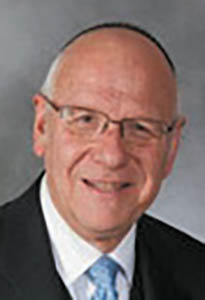
The first section of the second chapter in Melachim I, the haftarah selection for today, is made up of the final message given by David Hamelech to his successor, Shlomo. Like the parsha we read in which Yaakov Avinu blesses his sons, we sense the significance of the message as the torch is being handed down from one generation to another. This is true of King David as well, for he, too, is passing the torch to his son who will found the Davidic dynasty, the first example in Jewish history of a regent father handing the ruling power to his son. The language used in Sefer Melachim (“Vayikrevu yemei David lamoot”) also parallels that which is used in our parasha (“Vayikrevu yemei Yisrael lamoot”). Additionally, these tzava’ot (last wills and testaments) also mark the ending of two periods of our history: the period of the Patriarchs and the period of the conquest.
Nonetheless, much as we mentioned when comparing the two readings for Parshat Chayei Sara, the contrast between the words of the aging regent and those of the elderly patriarch is more striking than are the similarities. Once the sons had healed the schism that threatened to tear apart the family, Yaakov is able to call all of them to his bedside and offer each one a fitting blessing for their future. David, however, was still smarting from the attempted coup of his oldest surviving son, Adoniah and, fearing possible attempts to undermine Shlomo’s hold upon the throne, he does not offer a blessing to his successor but, rather, advice to rid himself of those who threaten to destabilize Shlomo’s reign. In truth, these contrasts are so powerful that we almost wonder why, indeed, this haftarah was chosen to be read this week at all!
I would suggest that much of our discomfort lie in the term “blessing.” In fact, Yaakov’s final words to his sons were not blessings but “signposts” for the future. The patriarch himself says that by introducing his words with the phrase “…v’agida lachem et asher yikra etchem b’acharit hayamim,” “I will tell you what will happen to you in the latter days.” Certainly, most of his predictions are positive and complimentary, seeming to be simple blessings. They are, however, meant as guides to prepare them (and their descendants) for future events—especially the conquest and division of the Land of Israel. Even those sons who heard rather harsh words from their father understood they were meant to learn from the message so as not to repeat the same mistakes. It is this that a father wants to leave to his children; not simply good wishes, but life lessons to direct them when he is gone.
And this is precisely what David HaMelech does in his final words to Shlomo HaMelech.
The words don’t seem very nice and certainly couldn’t be described as “blessings,” but they were important words meant to help the young king succeed in leading his nation and securing his reign over the people. Note that the first message David leaves to Shlomo makes very clear what the most important thing is to succeed: “V’shamarta et mishmeret Hashem Elokecha, lalechet b’d’rachav l’shmor mitzvotav…kakatuv b’Torat Moshe,” to listen to Hashem and observe the mitzvot of the Torah. It may not be a blessing but it is the most essential requirement for success. No, David’s words are not pretty but they are the most essential message that Shlomo should carry in his heart throughout his life.
We all want blessings from our elders, our teachers and our holy rabbis. But far more essential than their “good wishes” is a lesson of how to lead our lives to make us more worthy of God’s blessings.
By Rabbi Neil N. Winkler
Parshat Vayechi










